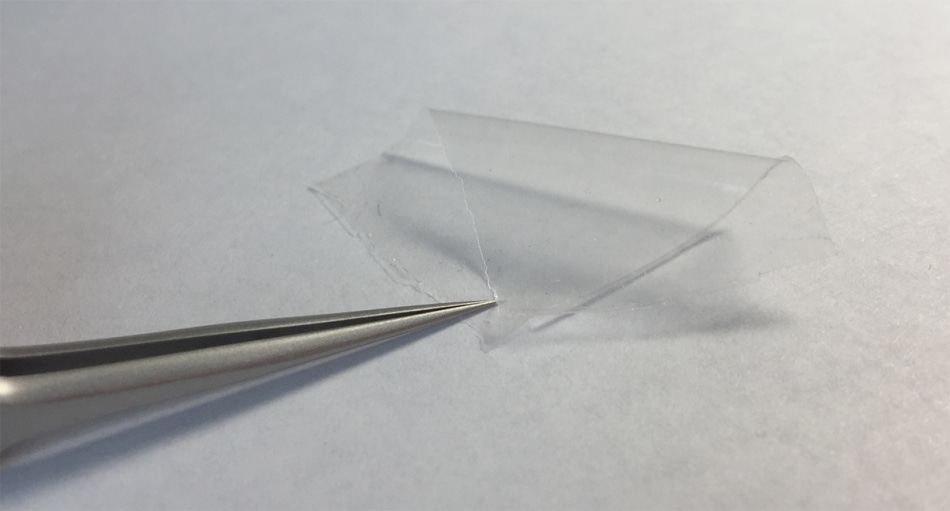Jun 27 2018
 A solid polymer electrolyte film that’s being utilized in lithium batteries in the research being led by Dr. Yu Zhu. Image Credit: The University of Akron.
A solid polymer electrolyte film that’s being utilized in lithium batteries in the research being led by Dr. Yu Zhu. Image Credit: The University of Akron.
The power source for embedded medical devices, unmanned aerial vehicles, electric cars, and other such objects is essential to their performance.
So, what would take place if that powerhouse of energy, for instance, lithium battery did not function as expected? An electric or hybrid car would be rendered unusable and a much-needed biomedical tool would impede a patient’s health.
These are the types of consequences Dr. Yu Zhu, a professor of polymer science, together with other scientists, is trying to avoid.
The paper from Zhu’s research group titled “A Superionic Conductive, Electrochemically Stable Dual-Salt Polymer Electrolyte” can be read in Joule, Cell Press’s forward-looking journal covering energy research across various domains.
Zhu and his research team created a solid polymer electrolyte that can be used in lithium-ion batteries to substitute the existing liquid electrolyte to enhance the safety and performance of lithium batteries.
Zhu says solid electrolytes have not been marketed in lithium batteries due to disadvantages like high interfacial resistance with electrodes and low ionic conductivity. However, Zhu and his team showed that a dual-salt based polymer solid electrolyte displayed exceptional electrochemical stability with lithium battery electrode materials and superionic conductivity at room temperature.
A solid electrolyte has long been thought for lithium-ion batteries due to its nonflammable property and high mechanical strength that may mitigate the disaster caused by battery failure. Battery safety and energy density are major concerns for emerging applications of lithium batteries, such as for use in electrical vehicles.
If the solid polymer electrolyte is successfully developed, the energy density of the battery could be doubled and the safety concerns for lithium batteries could be removed. This research sets up a strong base to develop such a promising solid electrolyte for lithium batteries.”
Dr. Yu Zhu, Lead Author
The research team has founded a company, Akron PolyEnergy Inc., which will further develop this method and create a large prototype for commercialization purposes in the future.
Zhu’s graduate students, Si Li and Yu-Ming Chen, are leading authors for this study. Other scientists include graduate students Wenfeng Liang, Yunfan Shao and Kewei Liu, and Dr. Zhorro Nikolov, instrumentation scientist at the National Polymer Innovation Center on campus.